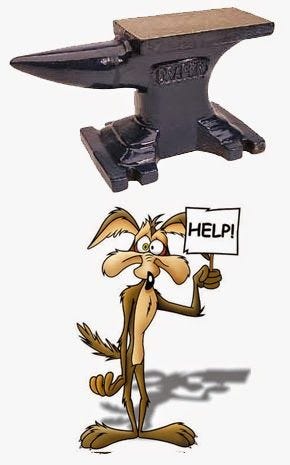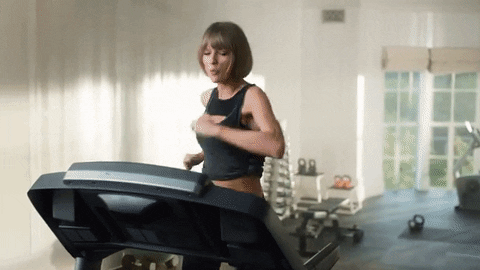#17 🗄️ The PM Interview and Organization Part (Feelings)
Why telling someone to make a plan and practice is the opposite of what you should say to someone with ADHD.
Adding emojis to headers to stimulate your ADHD brain for takeaways.
Part 7 of 12 of the Product Manager Interview and Executive Function (EF) Series. Scroll to the bottom to see the domains of EF I’ll be covering in no particular order.
What is Organization?
“Organization involves how we gather stimuli in our environment to complete tasks quickly and more effectively. It’s how we arrange our environment and provide order and structure to the items and activities around us. Organization skills are often closely tied to our ability to plan and prioritize—two other necessary executive functioning skills.”1
Takeaways
Acknowledge that interviews can be harder for you than others and it’s not your fault.
Organizational impairments from ADHD can make it hard for you to show your work because you’re too busy trying to keep your mind from running off or being overcome with anxiety.
Please don’t tell me to just “plan, practice, and make a list” unless you want me to hulk out in anger/shame. Instead, acknowledge my feelings and extend kindness to reduce shame.
Strategies, frameworks, and secrets don’t mean shit if your brain doesn’t connect with them.
Thank you to G for sharing their story with me and inspiring this week’s topic.
♿Introduction
I believe you can make the product management case interview more accessible to people with ADHD by making organizational accommodations on how to answer questions. There I said it. After 7 weeks of writing about how to cope with and overcome the product management interview, I’ve decided to switch my tone and say, it doesn’t have to be this way. I’ve spent months thinking about why I struggle with the product case interview. It’s time to think about how to improve it. This is a two-part story.
In part 1, I lay bare my organizational struggles with preparing and performing a case study interview to help understand the why of my behaviors.
In part 2, I propose a more accessible way for you to practice and answer your case study questions
⛰️What are PM case study interviews and how do they make me feel
"A case study interview, also known as a case interview, is a tool used by many companies to assess a candidate’s analytical, creative, and problem-solving skills. Similar to Coding Interviews for engineers, they allow the interviewers to simulate a situation that allows your skills to be put into practice"2. They're commonly used but not a role requirement. They bring me so much anxiety I started this 12-part PM interview series to work through it.
I know can build products and answer case interview questions. I know I can succeed and fail at PM interviews. I’m 1 win to 3 losses on case interviews. Two failures are not much but my ADHD rumination makes 2 failures feel like 2000. The fear and trauma of failure and the disappointment of having missed out on what could have been a great job occupy my emotional state. Diminishing my abilities to plan and practice for my interviews. Let’s explore more…
👩💻You want me to show you my work?
Interview questions, regardless of a case study or behavioral, are designed to help give the interviewer a look into how you think and make decisions. Whether you’re building a hypothetical app or explaining how you lead your team to launch a new feature, the process is about learning how you organize your thoughts and the impact you’ve made in previous roles. Guess what your ADHD likes to avoid? Organizing your thought process and taking credit for achievements (unless you have ADHD and narcissism 🤔)
I struggle to showcase my thought process and decision-making because I have a brain that runs 100x faster than a normal brain. Which makes it very hard to answer questions specifically designed to evaluate your thought process and decision-making abilities. It’s hard to show how you organize your thoughts when you’re barely keeping them organized in your head. Then add the looming anvil of trauma and disappointment that is ready to drop on you when you’ve decided to give up or fail.
The difficulty of acknowledging achievement comes from my favorite feeling, shame. Shame from thinking I either underachieved at something or I am over-recognized for something I legitimately accomplished. Thanks, rejection sensitivity dysmorphia, and imposter syndrome.3 It makes it hard for me to talk about myself without feeling like a fraud. Sprinkle on some self-doubt about if you really made the impact you thought you did, overwhelming fear of not getting the job, and you have why I sometimes poorly prepare and perform at job interviews.
😾Why “plan and practice” trigger me
If you ask any PM, including myself what the key to succeeding in interviewing is, they’ll probably say “Make a plan and practice” (bonus points if you tell them to make a list). This is also a great sentence to instantly trigger an emotional response from my ADHD. It doesn’t matter if it’s about work or a new hobby I decided to learn. When someone tells me to “plan and practice”, my ADHD gives me this two-step response:
Anger, because I know they’re not wrong but it’s not helpful. I know I should practice and plan, but I can’t. Shame because I know they’re not wrong and I don’t know what to do about it. “F’you…I can’t do it”.
This happens to me 90% of the time.
A matter-of-fact shrug and then I get into making my plan or practice. “OK, let’s get to work”.
This hopefully happens eventually, after I have exercised, taken my meds, meditated, procrastinated, and identified the task as something I truly want.
In a job interview (especially a case interview) scenario this emotional response mixes beautifully with my anxiety to create a cocktail 🍹 of dread and complete avoidance of practicing. I end up under-preparing for an interview and I improvise myself into failure. A failed job interview becomes one more thing to add to my shame pile of underachieving and abandoned dreams. Let that anvil drop.
💗 PLEASE
If someone is frustrated and you want to tell them to “plan, practice or make list”, please acknowledge their feelings first. Ask them more about how they’re feeling at the moment and listen. They probably know what they need to do but their emotions won’t let them do it. Extend kindness instead of inducing shame.
😓How this plays out in the interview
The most common scenario for me with case study questions is to start answering a question and then either quickly jumping to solutions or stating all the reasons why an idea could fail. I’ll have written three possibilities down for a section. Then spend 15 minutes explaining in high speed all the ways each could go wrong and their downstream implications. I run out of time and never get through the entire question.
I end up spending too much time and talking too fast for any human to trust me to make a decision that would impact their livelihood. I look unprepared and flailing. While on the inside, I’m trying to follow the formula to answer the question, keeping my emotional shit together, and pleading with my brain to slow the fuck down. Then it all collapses at some point. The interviewer’s eyes start rolling and we both can’t wait for the 45 minutes to end.
It doesn’t have to be this way though. For you with ADHD or anyone else without ADHD. I think there is a better way.
✨Conclusion
I wrote a deep dive into my emotional state with interviews because I wanted to acknowledge that these feelings and experiences are not unique to me, or those with ADHD. I would put money that there are neurotypical and neurodiverse people out there that can relate to my experiences. It’s important to me that I share these experiences because I want you to know you’re not alone. There is great power in knowing you are seen and connected to others. I’ve also tried to describe the what and why of my emotions and reactions in a way that you can begin to do the same for yourself. When you can understand the what and why of your brain, you’ll be able to identify the strategies that enable you to be successful. Strategies, frameworks, tips, and secrets don’t mean shit if your brain doesn’t connect with them.
🐼Want to learn more about ADHD and talk?
⏭️Next Week
In part 2 of organization, I share how to reframe the fear of failure as an OKR (even I’m surprised by this idea) and a Miro board to make your case study answering easier.
https://lifeskillsadvocate.com/blog/executive-functioning-skills-101-all-about-organization/
https://productschool.com/blog/interview-tips/product-management-case-study-interviews
https://my.clevelandclinic.org/health/diseases/24099-rejection-sensitive-dysphoria-rsd#:~:text=Rejection%20sensitive%20dysphoria%20(RSD)%20is,to%20differences%20in%20brain%20structure.







"It’s hard to show how you organize your thoughts when you’re barely keeping them organized in your head." this sentence reached my soul. It's as the answer as to 'how did you know it?': "well, I just know it. Looks as common sense" but it's not. Others want to know our process but we don't fully understand it.
Some years ago I read the favourite interview question from a successful and well known PM: "what did you learn last year?" (or something similar) and I've been STRUGGLING to find anything I learned more than a week ago (if anything) although I know I learn a lot everyday as I'm constantly reading, analysing and thinking about stuff that I then add to my knowledge or way of thinking...
Anyway, I'm loving this PM interview series as I also find the extremely difficult to perform and hate it that I don't get any feedback to know what went well and where did I screw it up